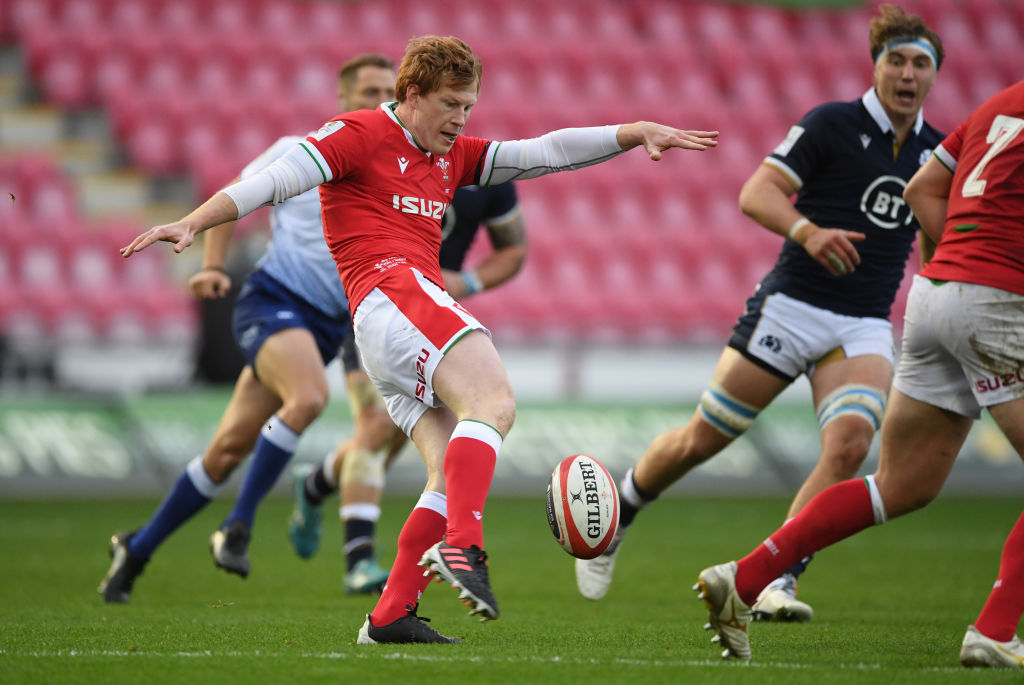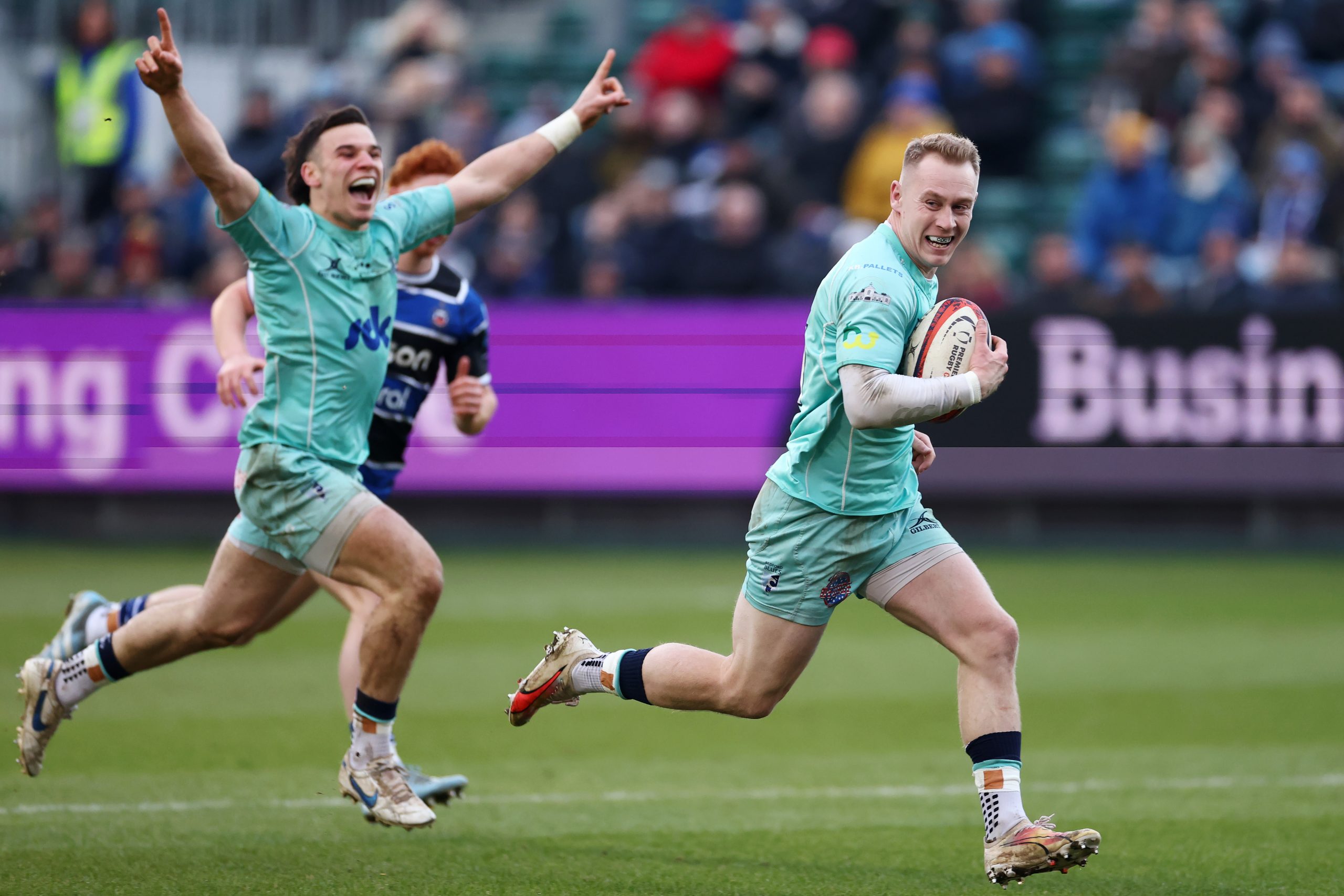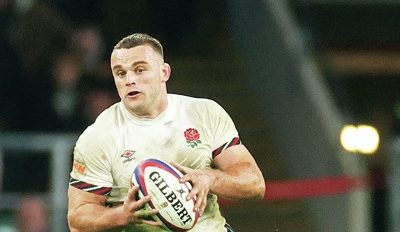 It is a decade since England last won in Dublin in the Six Nations. In the interim there have been heartache and heavy defeats inflicted on the men in white by the Irish since Martin Johnson captained the 2003 team to a Grand Slam glory, before they went on to claim the World Cup. The 24-8 humbling at the Aviva Stadium in 2011 which stopped Johnson grabbing a Grand Slam as a manager was one low point. Another was the record 43-13 Irish victory at Croke Park in 2007.
It is a decade since England last won in Dublin in the Six Nations. In the interim there have been heartache and heavy defeats inflicted on the men in white by the Irish since Martin Johnson captained the 2003 team to a Grand Slam glory, before they went on to claim the World Cup. The 24-8 humbling at the Aviva Stadium in 2011 which stopped Johnson grabbing a Grand Slam as a manager was one low point. Another was the record 43-13 Irish victory at Croke Park in 2007.
To rub salt in the wound, Twickenham had also been a happy hunting ground for the Irish. Even after Ireland‘s scrum fell apart last season to end their run on English soil (30-9), they were still well ahead on the recent overall win-loss ledger, with seven Six Nations wins since 2003 compared to England’s two.
However, England are on a mini roll of their own this time, having also won the 2011 World Cup warm-up Test in Dublin (20-9). With nine survivors from the 2011 Grand Slam slump present in the England squad that confronts the Irish today, there will be no lack of focus. Comprehensive defeats on potentially once-in-a-career occasions leaves a scar, and unless England want it opened up again they know that a slow start won’t do.
The visitors cannot afford the luxury of sitting back and seeing what Ireland have got, because Wales made that mistake and did not get a look-in until they were 30-3 down just after half-time. Stuart Lancaster’s outfit have to take the game to the Irish from the first whistle and look to silence the crowd by getting the upper hand at the breakdown.
That way they will pull Jerome Garces, the French referee, towards his usual orbit of rewarding the attacking side, rather than being caught up in the partisan fervour generated by the home crowd. Lose the breakdown war and the whole landscape will change.
BREAKDOWN
This contest is crucial to the outcome because it accounts for two-thirds of the possession on offer. It is also fascinating because England are the new kids on the block in terms of breakdown effectiveness, and have made massive strides recently, while Ireland have been ahead of the game for some time.
The choke-tackle introduced by Ireland’s assistant coach Les Kiss in the build-up to the 2011 World Cup has given them a consistent edge at the breakdown over their Six Nations rivals. The beauty of the innovation from the former Australia Rugby League wing is that stopping the carrier and holding him up off the ground is a win-win ploy. Even if the Irish do not succeed in winning a turn-over, the opposition ball will be treacle-slow because, by the time the carrier eventually gets to ground, his momentum has been halted – and the Irish defence is set.
However, closer analysis of the breakdown shows that Declan Kidney’s boys may not be as bullet-proof as has been made out despite the praise showered on them after the away win over Wales in Cardiff. Although their work in the first half was exceptional, with their targeting of the Welsh ball-carrier through choke-tackles, or grappling or ripping the ball, giving them a 5-2 turnover advantage, Rory Best, Sean O’Brien and company did not enjoy the same success after the interval.
In fact, by going to ground earlier in contact the Welsh piled on the pressure, and Irish discipline cracked with Rory Best and Conor Murray sin-binned, with Wales scoring a try each time they were reduced to 14 men. Ireland’s scramble defence may have been exemplary, but they were no longer able to slow down Welsh ball as effectively – and, after their first half exertions, some of the Irish forwards appeared to tire.
If England play with the same tempo as they did against New Zealand and Scotland it should test the Irish to the limit, as should their accuracy and technique in the tackle area. The ball presentation by England’s carriers has improved out of sight, and so has the cleaning-out by the close support. They have been getting the numbers game right, usually commiting no more than three or four players to the contact/guard role, who arrive with enough speed and force to ensure quick ball.
The English carriers will have to be dynamic enough to get over the gain-line against Ireland, and go to ground quickly, with breakdown blasters on hand immediately. It is the Irish choke-hold against the English clean-out.
RATING Ireland 7/10 England 8/10
CONTROLLERS
The question of control will be decided more than anywhere by the head-to-head between Jonathan Sexton and Owen Farrell. The 27-year-old Irish fly-half is the more experienced of the two, but Farrell, 21, has grown in Test match stature at a rate which is a cause for alarm for anyone not in the Red Rose camp. When it comes to goal-kicking and turning the screw by keeping the scoreboard clicking over the two are well matched, but Sexton’s stint under Joe Schmidt’s tutlelage at Leinster has sharpened his option taking, distribution skills and tactical awareness to the extent that he is seen already as the No.10 that the Lions cannot afford to be without in Australia this summer.
However, Farrell is coming up fast on the rails. The young Englishman is a rapid learner who brings the same physicality and intensity that has marked out his Irish rival. It will be a clash in every sense, because at 6ft 2in these are no will-o’-the-wisp fly-halves, and both tackle like flankers. In poundage terms Farrell (15st 2lb/96kg) is marginally the bigger man, although Sexton is probably slightly quicker.
Speed of thought is harder to measure, but Sexton’s 36 caps means he has a longer list of big match credentials and greater exposure when it comes to picking the right option at the right time.
RATING Ireland 8/10 England 7/10
GAME-BREAKERS
At first glance Ireland appear hold a narrow advantage in terms of individual inspiration because England are more of a collective force, but recent evidence suggests a level playing-field. The evergreen Brian O’Driscoll is a man on a mission for Ireland and the Lions, and the veteran No.13 put down his marker in effervescent fashion against Wales with his miracle pass for Simon Zebo’s try. The 34-year-old also posted a warning that he has the speed and venom of a rattlesnake when it comes to scoring close-range tries, and it is one that England will ignore at their peril.
Sean O’Brien has emerged as a forward talisman, and the flanker is another Irishman capable of turning a game on its head. His meaty power and drive in the channels close to the ruck is capable of providing an unstoppable momentum shift.
Manu Tuilagi will start the game on the bench, but after his match-winning exploits against the All Blacks there will be no-one in a green shirt who will relish his arrival on the Aviva Stadium pitch. Tuilagi is a force of nature, and if England win enough quick ball he is a powerhouse capable of making the Irish midfield look as if it is been hit by a twister.
Ben Youngs holds the keys which so often unlock England’s self-expression. This is a scrum-half who will hurt you as soon as you drop your guard – and sometimes finds a way of doing so even when you seem to have everything covered. He has an instinctive eye for the gap and blistering acceleration.
RATING Ireland 7/10 England 7/10
SET-PIECE
Ireland will be desperate to avoid the scrum meltdown that undid them last year at Twickenham, but England will again pile the pressure on Mike Ross. The problem for Ireland is that their No.3 limped off with a tight calf in Cardiff, and if he is not fully fit then Joe Marler and Tom Youngs are ruthless enough to exploit it. However, if Ross lasts the course, expect the scrum honours to be more even – because Marler will have to excel to unsettle the Irish tighthead like Alex Corbisiero did.
There is not much to choose between the lineouts, with both functioning efficiently last time out, and with Rory Best and Tom Youngs each with four target-men to aim at. The Irish driving maul has a slightly more cohesive snap to it, but it is another area where England are steadily improving.
RATING Ireland 6/10 England 7/10
STRIKE-POWER
The big concern for England is that their back three does not pose the same counter-attacking threat as Ireland’s. Where Rob Kearney, Simon Zebo and Craig Gilroy have the pace and footwork to cut a swathe through the tightest defence, an England trio including two full-backs looks short of speed. Scotland’s Stuart Hogg underlined this by scorching either past or through Alex Goode and Mike Brown, and, although wing Chris Ashton has recovered his try scoring-form, it is not a unit that clicked in defence or attack last weekend.
The arrival in midfield of Billy Twelvetrees has, however, given England a foil to the venerable D’Arcy–O’Driscoll combination, because the Gloucester No.12 is big enough and quick enough to ask a few questions of the Irish duo.
When it comes to forward carriers Ireland are well-served with Cian Healy battering holes around the fringes, and Rory Best tearing about like a third flanker. However, while England will miss Ben Morgan’s firepower – an ankle injury depriving the No.8 of the chance to pit himself against Jamie Heaslip – Tom Wood’s steady return to top form couldn’t be better timed.
Last, but not least, Ireland’s gains are offset by the arrival of Joe Launchbury, who is already emerging as the most athletic, footballing lock in the tournament.
RATING Ireland 7/10 England 7/10
DEFENCE
Ireland’s scramble defence was so fierce it kept Wales at bay until infringements saw them reduced to 14 men, and their collective spirit in fighting for every inch of ground, and covering every blade of grass to do so, was impressive. The other side of the story is that the Irish had two men yellow-carded mainly because of their willingness to concede three points rather than five, or seven.
England’s defence is solid but not as aggressive or cohesive as Ireland’s – and the risks they take in throwing numbers into attack sometimes leaves them vulnerable to quick counter-thrusts.
Just as England were caught out against Australia in the autumn, so they were too against Scotland with front five forwards exposed wide out in the defensive line and ready to be picked off.
RATING Ireland 7/10 England 6/10
































You must be logged in to post a comment Login